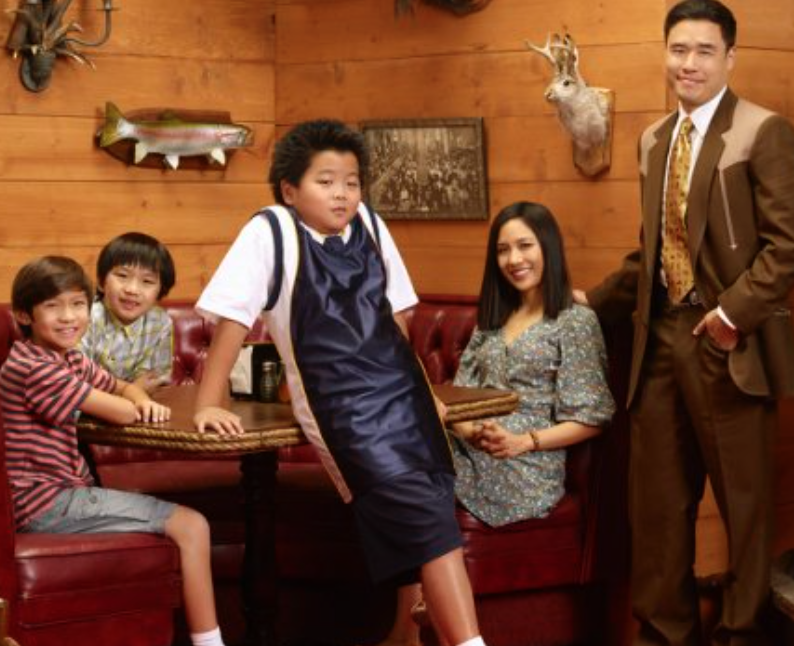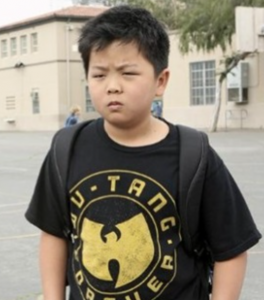 Watching “Fresh Off the Boat,” the new ABC sitcom based on Eddie Huang’s eponymous memoir about growing up in Orlando, Florida, defies the time-space continuum in more ways than one. It’s not just that the series is set in the 1990s, or that I haven’t voluntarily viewed anything so old-school “sitcommy” since then. It’s that the last time television so matter-of-factly broke a glass ceiling was when “Will & Grace,” which featured two gay male characters, became an NBC smash in 1998. “Fresh Off the Boast” is the first stateside sitcom to star an Asian actor since Margaret Cho’s ill-fated “All-American Girl” was canceled in 1995 – the same year this series is set.
Watching “Fresh Off the Boat,” the new ABC sitcom based on Eddie Huang’s eponymous memoir about growing up in Orlando, Florida, defies the time-space continuum in more ways than one. It’s not just that the series is set in the 1990s, or that I haven’t voluntarily viewed anything so old-school “sitcommy” since then. It’s that the last time television so matter-of-factly broke a glass ceiling was when “Will & Grace,” which featured two gay male characters, became an NBC smash in 1998. “Fresh Off the Boast” is the first stateside sitcom to star an Asian actor since Margaret Cho’s ill-fated “All-American Girl” was canceled in 1995 – the same year this series is set.
This doesn’t automatically mean “Fresh Off the Boat” is worth watching. Huang himself initially expressed trepidation about the production, suggesting it was a “reverse yellow face” – an attempt to fit an Asian American family into a traditional white TV family template. Others have rushed to the show’s defense. In a Slate roundtable, NPR’s Kat Chow agreed that it was “like a traditional sitcom” but praised it for “the various signposts for Asian Americans woven into them … the stinky tofu as the ‘weird Asian food’ … the ‘success perm.'”
To me, the genius of “Fresh Off the Boat” is that it is a traditional sitcom – with a stealth bomb of social observation buried at its core. (We could argue this encapsulates all the best sitcoms in TV history.) Hudson Yang plays Eddie, a Chinese-American, hip-hop-obsessed tween who’s a fish out of water in his new lily-white neighborhood. His father, Louis (the waggish Randall Park, last seen playing President Kim in “The Interview”), wants to make his struggling steakhouse succeed by any means necessary. (“I need a manager with a nice happy white face, like Bill Pullman.”)  Eddie describes his mother, Jessica (Constance Wu), as a proto Tiger mom; when he gets all As, she decides his school is too easy. His two younger brothers, Emery (Forrest Wheeler) and Evan (Ian Chen), are adorable pipsqueaks, and his grandmother rarely speaks English, wins the kids’ possessions away from them in poker, and rolls in a pimped-out wheelchair. The latter three may be staunchly two-dimensional, but it’s Jessica who is the real heart of the show. An obsessive truth-teller, she rolls her eyes at white culture, including her younger sons’ sticker-laden, “noncompetitive” report cards; “Melrose Place” (“So it’s about prostitutes who are mad at each other?”); the blonde, rollerblading Stepford wives of the neighborhood (“Are you all sisters?”); and Nascar, though she does have a soft spot for Stephen King movies. Wu’s irresistibly deadpan delivery makes it impossible not to come down on her side; she’s as punk-rock as Eddie is original gangster.
Eddie describes his mother, Jessica (Constance Wu), as a proto Tiger mom; when he gets all As, she decides his school is too easy. His two younger brothers, Emery (Forrest Wheeler) and Evan (Ian Chen), are adorable pipsqueaks, and his grandmother rarely speaks English, wins the kids’ possessions away from them in poker, and rolls in a pimped-out wheelchair. The latter three may be staunchly two-dimensional, but it’s Jessica who is the real heart of the show. An obsessive truth-teller, she rolls her eyes at white culture, including her younger sons’ sticker-laden, “noncompetitive” report cards; “Melrose Place” (“So it’s about prostitutes who are mad at each other?”); the blonde, rollerblading Stepford wives of the neighborhood (“Are you all sisters?”); and Nascar, though she does have a soft spot for Stephen King movies. Wu’s irresistibly deadpan delivery makes it impossible not to come down on her side; she’s as punk-rock as Eddie is original gangster.
The subversion doesn’t stop there. Though each episode cleaves to the traditional thirty-minute family TV format – insert neatly tied happy endings here – sociologically complex issues are tackled. A black classmate tells Eddy, “You’re the one at the bottom now. It’s my turn, chink!” When it’s Eddy who catches flak for the ensuing fight, his parents threaten to sue the school, with just enough light humor to maintain sitcom street cred. Or is that an oxymoron?
No one’s going to pretend that this show matches the real Eddy Huang’s charismatic, off-the-charts indignation. His book is inflected with sly anti-agitprop, f-bombs that detonate with nearly every page, and a libido to make Tindr users blush–hardly fodder for prime-time network television. But while a premium cable series might have better reflected the author’s overall strut (the memoir’s second half documents his evolution as a rock-star restaurateur), it would not have reached as widespread an audience.
Ideally, “Fresh Off the Boat” will last long enough to ripen into the many-layered terrarium that “Parks and Recreation” eventually became, with all the Huangs as fully fleshed out Jessica already is. Even if it doesn’t, the series is paving the way for a new era of Asian American media representation. Lest we forget, though we now may turn up our noses at the broad strokes of “Will & Grace,” it undeniably helped establish queer people as more than sidekicks, sexual predators, and AIDS patients in the cultural mainstream. It’s like Ol’ Dirty Bastard says: “For good or worse, makes you switch.”
This post was originally publishd in Word and Film.
